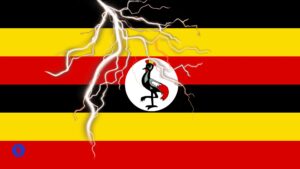Briefly: The Kakhovka dam in Russian-occupied Ukraine breached yesterday (Tuesday), sending up to 18 billion litres (4.8 billion gallons) of floodwater surging across the south of the country. The incident has led to thousands being evacuated, and vast swathes of agricultural land being degraded or destroyed.
The Kakhovka dam is just 30km upriver from Kherson, a Ukrainian city which Kyiv recaptured late last year. It held as much water as Utah’s Great Salt Lake, supplying southern Ukraine’s canal system as well as the nearby Zaporizhzhia nuclear power plant (Europe’s largest).
It’s still unclear who or what exactly caused the dam to breach:
Stay on top of your world from inside your inbox.
Subscribe for free today and receive way much more insights.
Trusted by 129,000+ subscribers
No spam. No noise. Unsubscribe any time.
- 🇷🇺 Russia accuses Kyiv of destroying it to cut the water supply in Russian-held Crimea, and enable Ukraine to reallocate troops from Kherson
- 🇺🇦 Ukraine is accusing Moscow of blowing up the dam to hinder Ukrainian advances across the river, and
- 🤷 Russian-installed officials say the Soviet-era dam collapsed on its own (there were reports it was mismanaged by the Russian occupiers)
And this all comes just days after both Russian and US reports suggested that the long-anticipated Ukrainian counteroffensive might’ve begun.
Intrigue’s take:Here we are again, feeling our way through this fog of war. And again, for a compass, it helps to ponder which side ‘benefits’ most here.
The first theory above asks us to believe that Ukraine unleashed this disaster on its own people and territory to distract Russia (and cut off Crimea’s water).
The second rests on Kyiv now being distracted with a humanitarian response, and blocked from using its new NATO-supplied heavy weaponry in the flooded territories for at least a month.
And the third rests on a ~70 year old dam collapsing at the very moment Ukraine was set to launch its counteroffensive.
US intelligence is reportedly “leaning towards” theory #2. And based on the limited information available right now, it seems the most plausible.
Also worth noting:
- Targeting civilian infrastructure is a war crime under the Geneva Convention.
- The UN’s nuclear watchdog has said there’s “no immediate risk” to the Zaporizhzhia nuclear power plant.
- Global wheat prices spiked when news of the dam’s collapse emerged.








